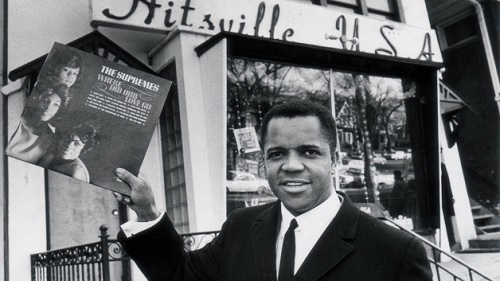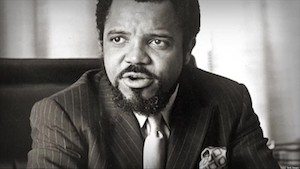Warm birthday wishes go to a man who, without exaggeration, can be said to have helped to shape the sound of the 20th century. Berry Gordy Jr, the founder of Motown Records, turns 87 today, 28 November.
Detroit native Gordy built his empire on his early success as a songwriter, notably of “Reet Petite,” “Lonely Teardrops” and others for perhaps the pre-eminent black music entertainer of the late 1950s, Jackie Wilson. Detroit, the Motor City itself, was sharing the fruits of America’s post-war economic boom, and there were possibilities for a young and savvy business creative, as we’d call them now. But no one, surely not even Berry himself, could have known exactly the global dimensions that those possibilities would assume in the coming decades.
 It all began with Marv Johnson’s “Come To Me,” co-written by the singer with Gordy, who also produced the song. It was released as the first single on Tamla Records (catalogue number Tamla 101) in January, 1959, and almost from the beginning, Gordy had success beyond the size he could cope with.
It all began with Marv Johnson’s “Come To Me,” co-written by the singer with Gordy, who also produced the song. It was released as the first single on Tamla Records (catalogue number Tamla 101) in January, 1959, and almost from the beginning, Gordy had success beyond the size he could cope with.
As “Come To Me” began to expand beyond Detroit and turn into a national success, his embryonic Motown company was, as yet, far too small to do it justice. Gordy, astute from the first, licensed it to United Artists, and “Come To Me” went on to nestle at No. 6 on the R&B chart and No. 30 pop. The seeds were sown.
Experts have debated the secrets of Motown’s success through these following six decades, but if there were any in those early times, Gordy’s focus on a close-knit environment was key. So was his ability to attract, and then to hone, the elite among local talent to the company by being the actor-manager, so to speak: the businessman who was on the factory floor, just as he had been when he worked at the Ford Motor Company’s Lincoln-Mercury plant some years before.
 That, and the combination of glorious creativity and rigorous discipline. That union made the Motown benchmark higher than just about anyone else’s, and it took what would previously have been known as race music into the homes of Americans of every creed and hue, and then their counterparts around the world. Those who worked with and for Gordy tell stories of his ruthless adherence to the standards he set himself and expected of others.
That, and the combination of glorious creativity and rigorous discipline. That union made the Motown benchmark higher than just about anyone else’s, and it took what would previously have been known as race music into the homes of Americans of every creed and hue, and then their counterparts around the world. Those who worked with and for Gordy tell stories of his ruthless adherence to the standards he set himself and expected of others.
The glory days of Gordy’s empire can surely never be matched in the modern day music environment. They’ve been imitated often enough, and the echoes of what Berry, and everyone connected with the company, built reverberate around the world every hour of every day. As Motown: The Musical continues to ride the endless tidal wave of affection for the company’s legacy, we rejoice in the fact that none of it would have happened without Berry Gordy Jr.




